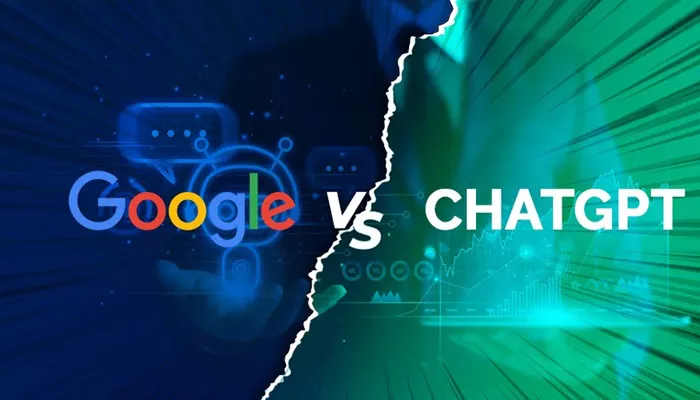A recent study has revealed that conversion rates from generative AI traffic, particularly from platforms like ChatGPT, differ significantly from those driven by traditional organic search such as Google. The research, conducted by SALT.agency, examined engagement trends across various industries using a new metric known as the Key Event Conversion Rate (KECVR), which reflects how frequently users complete meaningful interactions during a web session.
Between January 1 and March 31, 2025, referral traffic from generative AI tools increased noticeably. As platforms like ChatGPT and Perplexity began including more links to external websites in their responses, traffic from these sources surged, prompting a closer look at how users from AI sources engage compared to those arriving via organic search.
The study showed that across most industries, organic search users were more likely to complete key events than those referred by AI. For example, in the general information sector, AI traffic had a KECVR of 49.44 percent, while organic search achieved 54 percent. In the automotive industry, AI traffic showed a KECVR of just 0.24 percent, while organic search yielded 0.41 percent. In B2B e-commerce and services, AI traffic also underperformed slightly, with KECVRs of 2.62 percent and 2.77 percent, compared to 2.68 percent and 3.01 percent respectively for organic search.
However, the study found that in several industries, generative AI traffic actually outperformed traditional search. In the real estate sector, the KECVR for AI traffic was 6.25 percent, far exceeding organic search’s 2.71 percent. In publishing, AI traffic achieved a conversion rate of 10.49 percent, while organic search came in at 6.57 percent. The careers sector also favored AI, with a KECVR of 22.31 percent versus 16.58 percent from search. Other industries where AI traffic led included directory services and healthcare, where the difference, while smaller, was still notable.
Some sectors showed nearly equivalent performance between the two traffic sources. In the software-as-a-service (SaaS) industry, AI traffic had a KECVR of 6.69 percent, closely matching organic search at 6.71 percent. This parity suggests that in information-heavy fields where users seek practical and technical solutions, both AI and search can offer similarly effective referral value.
On the other hand, certain industries saw significantly lower engagement from AI-generated traffic. In consumer e-commerce, AI traffic yielded a KECVR of 17.56 percent, well below the 24.12 percent achieved by search. In education, the gap was also wide, with AI traffic converting at 1.89 percent compared to 3.97 percent for organic search. The pharmaceutical and human resources sectors followed similar patterns, with organic search outperforming AI by a large margin.
These findings illustrate that while AI-generated traffic is on the rise, its effectiveness varies greatly depending on the context. Traditional search engines remain more effective for transactional or research-intensive queries, particularly in sectors like e-commerce, education, and pharmaceuticals. In contrast, AI referrals seem to work better in sectors where content is more narrative, location-based, or guidance-driven, such as real estate, publishing, and career planning.
To ensure accuracy and consistency, SALT.agency collected crowdsourced analytics data from a broad range of global SEO professionals. The dataset included 671,694 user sessions from generative AI sources, which produced 214,617 key events. For comparison, 188,357,711 sessions from organic search were analyzed, with a total of 62,191,461 key events recorded. All data was captured using Google Analytics 4, with industries grouped into 40 standardized verticals. The researchers noted that not all clients or websites analyzed had AI traffic during the observed period.
The growing presence of generative AI traffic presents both opportunities and challenges for SEO professionals. While traditional search continues to drive the most consistent results, AI referrals are gaining traction and demonstrating strong performance in select industries. The key for marketers will be to understand where each traffic source performs best and to adjust their strategies accordingly.
This evolving landscape has also sparked wider discussions about the future of search. In April 2025, Apple executive Eddy Cue testified in a United States antitrust trial, stating that Google’s quality still outpaces AI tools, which are often inaccurate or incomplete. Despite this, Cue acknowledged that Apple continues to monitor the rapid development of generative AI and its potential role in reshaping how users find and interact with content online.
As AI technology continues to mature and become more integrated into everyday applications, the dynamics between traditional search and AI-generated traffic will likely shift further. Businesses and digital strategists will need to closely monitor these trends and refine their engagement strategies to stay ahead in an increasingly competitive and AI-influenced web ecosystem.
Related Topics
- Google AI Overviews Expand Again & Lead To 10% Query Growth
- Majestic SEO Reviews Link Building as the Right Choice for 2025
- Google’s AI Updates Mark the End of Traditional SEO

